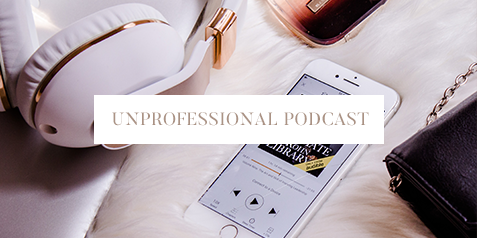In celebration of International Women’s Day yesterday, we’re featuring a female thought leader who is on a mission to bring soul and femininity back to the workplace through empathy and awareness. Here’s another blog takeover by Courtney Branson. Today she shares how important it is to prioritize your mental health in our pursuit to be a better version of ourselves.
Growth can’t be self-sacrificial
No one is putting up with companies or people that reward burnout — How to prioritize mental health and growth.
After becoming a mother, I silently faced my third time with an eating disorder. It’s a terrifying experience?hurting yourself gives you what you want. I felt better about my appearance, and others validated that. When I recovered, the validation stopped. Imagine my surprise to learn that I transferred that control to work. I received praise for overwork and when I stopped, so did the praise. I wanted to improve myself?get to the next ideal weight or target salary. Nothing was ever enough.
Self-improvement shouldn’t be self-sacrificial. It can’t be.
The self-improvement illusion
Throughout my childhood, my dad played self-help tapes during truck rides. I remember the anxious feeling of needing to improve. I pictured it like a race?self-improvement was an end post, and once I got to it, well, then I was finished, complete, whole. To me, we were all running to the same end post.
The cassettes washed my mind with feelings of inadequacy. I believed I was inherently flawed, and life’s journey was to become less flawed. Accolades, education, titles became mile markers in life. They served as tangible signs that I was in the race. Then, after years of running, I burned out. I wasn’t improved; I was depleted.
For improvement to be sustainable, it can’t deplete the source.
Many of us spend our whole lives playing self-improvement mantras on loop. We feel compelled to lead lives that are personally fulfilling and contribute to the greater good for all. That’s a tall (and exhausting) order in a world that doesn’t necessarily understand or reward those things.
I didn’t want to constantly be reading about how to be better; I wanted to put myself in situations to be enriched and where my values and talents uniquely contribute.
I thought that I had found my home working in startups.
Working at my first startup felt powerful?I was part of something bigger, a “family” that was by most accounts more accepting than my own. However, growing in a startup is rarely a feat of intentionality; it’s a feat of survival. There’s so much that can be better in the company, your team, your role. I felt heavy with all the things that could be better. I got “meaning” and “purpose,” all for the low, low price of my soul.
What did it mean to sell my soul? It started innocuously?helping to fill a gap in the team, staying late for the one project and then staying late every night. Eventually, my identity wove so deeply in the company that I couldn’t separate myself from it; I couldn’t introduce myself without it.
That startup benefitted from my willingness to work long hours and stretch across multiple disciplines. So why did I do it? For the validation that I was improving, just like the tapes said.
Success at work started to feel mutually exclusive from my mental health. As I fizzled out, I sat with questions like:
- How to hustle without glorifying the hustle.
- How to be urgent without making everything a fire.
- How to praise dedication but not glorify overwork.
- How to be authentic, not perfect.
It all came back to?for improvement to be sustainable; it can’t deplete the source.
We’re all starting from and going to different places. Yet, in life and work, people are often treated as inherently flawed. They need to be molded to fit a certain standard.
I didn’t grow up seeing food as a way to nourish my body or enjoy. Recovery included creating a new relationship with food, accepting an identity not tied to my childhood nickname, Skinny Minnie, and letting go of the need to fit society’s standards.
Related, work was a race, part of my identity, and a way to show society my worth. What if work was a place to be curious, learn, and find a unique way to impact a company instead of trying to do everything in that company.
The first thing I did was stop introducing myself by title and company affiliation. Despite how awkward it felt, I led with soul in professional settings: I’m Courtney; I’m on a mission to bring femininity into the workplace. I like nurturing, which manifests in motherhood, a love of animals, and gardening. I didn’t need a title or a company name to offer value to another person.
Redefining my identity and my feelings toward work is like my relationship to food; it’s an ongoing process that’s not linear. To sustain my improvements in both, I have to be mentally healthy. My bad behaviors creep in when I abandon my boundaries and rituals.
Unfortunately, companies largely leave it up to individuals to set and maintain boundaries at work. They may encourage boundaries but act in contradictory ways?like promoting family, diversity, health, then praising individuals for burning the midnight oil. It signals to folks who can’t work late that they don’t hold the same value.
So, what is a company to do?
Companies “thrive” on people giving their souls over, but that’s only in the short term. It’s not sustainable, and it’s not real life. Work environments where folks are treated like machines instead of humans lose empathy, diversity, creative thinking, and, as we see in troves?people.
At Osano, where I lead People + Culture, my team has a little mantra?Working at a startup is hard, so we’re kind to others and ourselves.
That means creating an environment where individuals can:
- make mistakes without fear of internal shame or external blame.
- share imperfect ideas and rough drafts without being judged or criticized.
- establish a balance that supports their life and company goals.
- get attention, acceptance, and appreciation from others.
- take time away to rest, reflect, and recharge.
- build upon their potential + talents through learning and experiences.
- carve an original + ever-evolving career path with support from leaders.
- have a unique, positive, and celebrated impact on the company.
- adapt their growth to match the season of life they’re in.
These tenets aren’t new. They’re inspired by the humanistic approach to honor individuals who want safe, authentic, fulfilling, and meaningful growth.
Too often, companies frame growth as a means to an end; it’s setting goals or learning skills to get the promotion, title, salary. That’s not necessarily a bad thing; a structured approach allows for shared expectations. But it can also create an environment where the individual doesn’t feel like enough, burns out trying to achieve, or acts in ways that are inauthentic. We’re not all going to the same end post.
Individual development should never be about molding or fundamentally changing a person. Instead, it’s supporting individuals to evolve into the next version of themselves and finding opportunities for them to shine at work.
Safety at work benefits individuals AND companies.
Psychological safety?giving attention, autonomy, acceptance, community, status, recognition, and meaning?emphasizes the inherent worth of the individual. It also assumes that individuals want to do good, creative work and will in the right circumstances.
Companies that create the right circumstances will be able to generate innovation, loyalty, engagement, and be an employer of choice during a time when individuals have to prioritize their mental health. Each week, I interview candidates that want to do good work and lead fulfilling lives; they’re just looking for a company that wants the same thing.
The stigma of mental health is fading, and with that comes companies’ responsibility to provide an environment that supports mental health. Mental health concerns already exist in your company, colleagues, team, you.
People may have anxiety, depression, body dysmorphia, past trauma, perfectionism, attentive disorders, feel compelled to mask their neurodiversity, or in general be languishing after the past few years.
How do you support mental health at work?
- You should want to support mental health at work. All sustained change starts from truly wanting the workplace (or yourself) to be different.
- Question how things work in your company. Are you giving attention, appreciation, acceptance, belonging, stability? Stability often looks like predictable moods and reactions. When someone doesn’t know how you’re going to react, that’s not a safe space.
- Ask your team to describe what your company values and rewards. Do their answers indicate a focus on control/command or trust/autonomy?
- Observe the language used in conversations, especially with hiring and promotion. Do you hear words like “mold” or “fit”? Are individuals across demographics, teams, seasons of life able to grow in your company?
- Lastly, weave mindfulness and awareness of burnout signs into the employee experience. Individuals burning out could indicate an individual and/or company concern. Burnout is a disconnection.
We are capable of so much, but no one is willing to destroy their mental health anymore, to lose their soul. I’m certainly not. People are the source of energy, creativity, and innovation in every business. We need them. So, growth can’t be self-sacrificial. Sacrificing the self to improve kills the root. That’s why every guide on gardening talks about pruning.
Companies cannot grow if they destroy the source.
And I cannot grow if I destroy the source.
About Courtney Branson
Courtney’s mission is to bring soul back to the workplace through empathy and reverence for individuals. Currently, she leads People + Culture for Osano, a data privacy startup. She enjoys journaling, reading true crime, and being a mom to her daughter + rescue animals. Read her writing on Medium.














